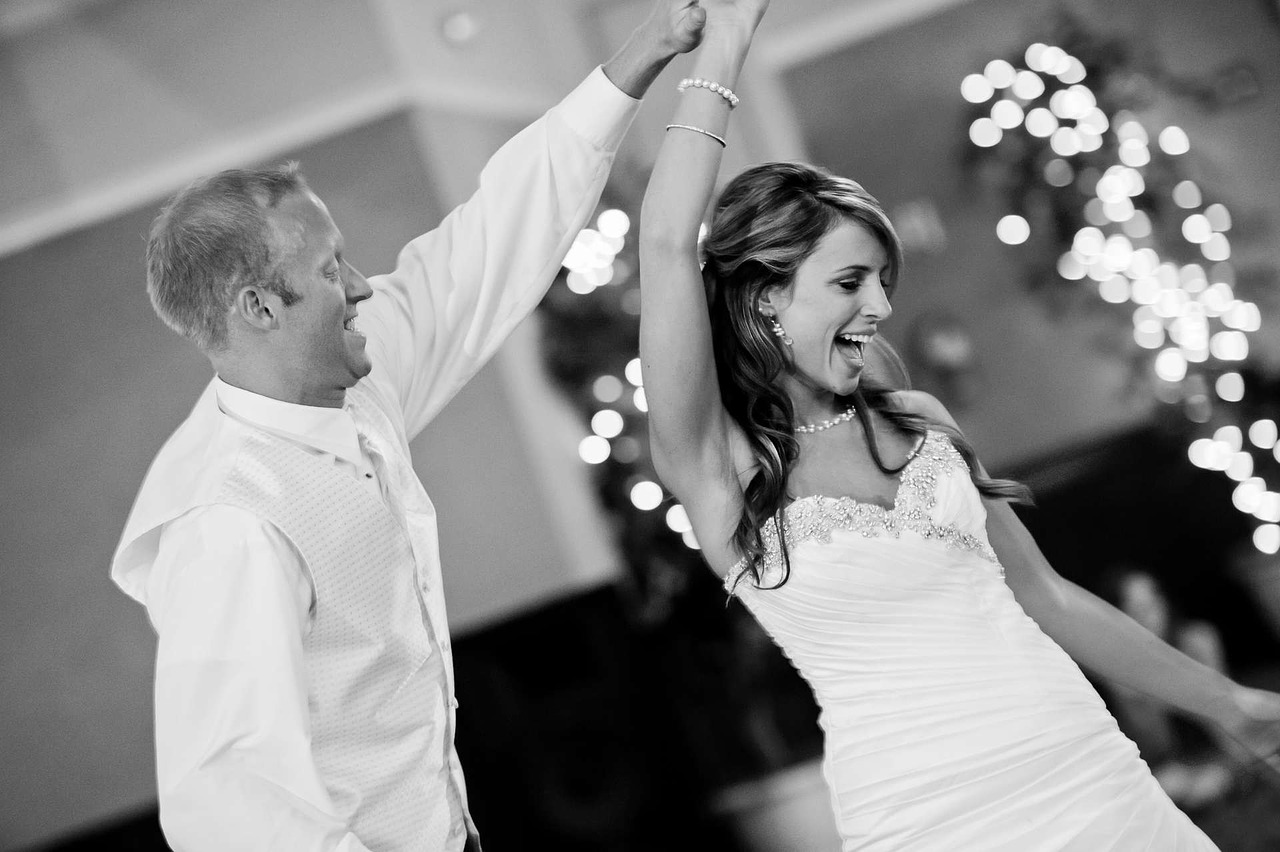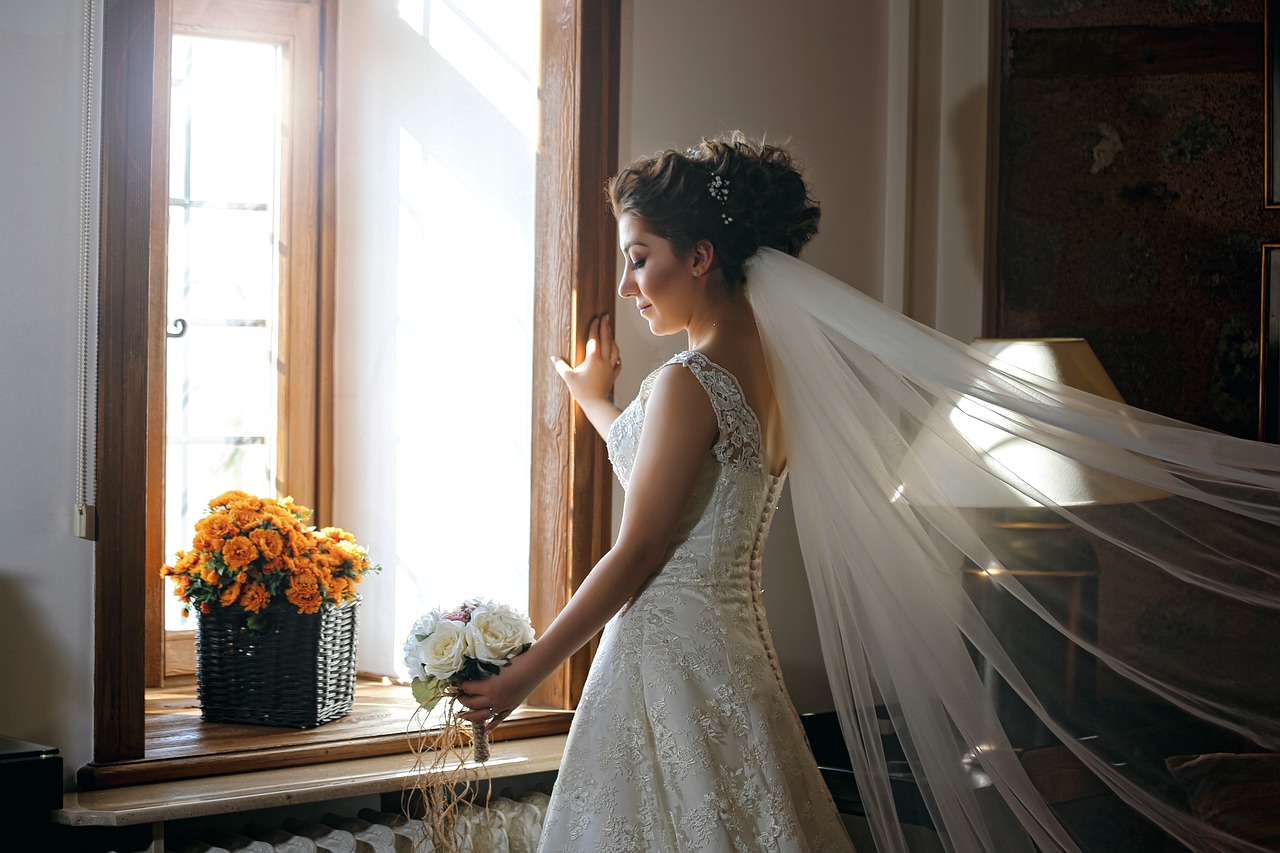Second weddings are increasingly popular, offering couples a chance to celebrate their union meaningfully and personally. Planning a second wedding can feel just as exciting, though it may come with unique considerations and expectations.
This guide will provide practical advice, fresh ideas, and etiquette tips to help you create a memorable second wedding that reflects your unique journey.
Let’s get straight to the point
Planning a second wedding allows couples to create a personalised and meaningful celebration. Unlike first weddings, second weddings often provide more flexibility in guest lists, attire, decor, and family roles, allowing couples to focus on what truly matters to them.
This guide suggests intimate or grand ceremony options, incorporating children and loved ones in new roles, choosing relaxed or unique venues, and simplifying decor.
With modern etiquette tips for registries, invitations, pre-wedding parties, and fresh ideas like writing personal vows and hosting at-home or destination weddings, second weddings can be a memorable and joyful milestone celebrating the couple’s journey and future together.
Embracing a New Beginning

Planning a second wedding can bring up different emotions and expectations compared to a first wedding. Couples might feel freer to personalise every aspect of the ceremony, from attire to the guest list, especially since traditional family roles and expectations may differ.
Here are some ideas to help you design a beautiful and relaxed celebration:
1. Personalise the Ceremony and Reception
Your second wedding can be as grand or as intimate as you want it to be. Many couples choose a simpler, more intimate celebration, but if a big celebration aligns with your vision, go for it!
- Size of the Event: Choose a guest list that feels right. There is no pressure to invite extended family or people out of obligation. Keep it close-knit if that feels more meaningful.
- Style and Theme: Second weddings allow for more flexibility. This is your opportunity to create a relaxed or sophisticated setting that matches your tastes, whether a garden party, beachside gathering, or an elegant banquet.
2. Rethink Traditional Family Roles
You can create new traditions and roles for loved ones at a second wedding.
- Walking Down the Aisle: If you walked down the aisle with a parent or loved one in your first wedding, consider involving other family members in different ways this time. For instance, you might skip the traditional aisle walk and meet your partner directly at the altar.
- Include Children: If you or your partner have children, consider giving them roles that make them feel included, such as flower girl, ring bearer, or even giving a reading during the ceremony. This can be a meaningful way to bring families together.
- Honouring Late Partners: For those who have lost a spouse, small gestures like sharing a meaningful reading or displaying a treasured photo can honour their memory while creating a new chapter.
Choosing the Right Venue and Decor
Selecting a venue and decor for a second wedding opens up exciting options, and your event can be as unique or traditional as you like.
1. Venue Selection Tips
- Outdoor Settings: Many second weddings are celebrated in outdoor locations. Gardens, vineyards, beaches, or even a friend’s backyard can provide a relaxed and scenic environment.
- Adding Ambience: String lights, candles, and lanterns beautifully enhance evening ceremonies. These elements add warmth and intimacy to the setting without needing elaborate decor.
2. Simplify Your Decor
Personal touches can make a second wedding feel unique without going overboard. Here are some ideas to add charm and character:
- Centrepieces: Opt for simple centrepieces like potted plants, tall grasses, or flowers in glass jars. These add a touch of nature and elegance without the cost of elaborate floral arrangements.
- Family Tree Display: If blending families, consider adding a family tree display at the reception to represent everyone in the union.
Second Wedding Attire: A Fresh Approach
Your attire for a second wedding doesn’t need to follow traditional rules, giving you more freedom to wear what feels right.
1. Bridal Gown Alternatives
Many brides choose non-traditional colours or styles for their second wedding. You can keep it classic or try something new, like champagne, pastel blue, or pink.
- Dress Styles: An A-line dress, tea-length gown, or even a stylish pantsuit can look beautiful and fit the tone of your event.
- Comfort First: Whether you choose a gown, a dress, or a suit, prioritise comfort and confidence. Choose an outfit that reflects your personality and feels effortless to wear.
2. Groom’s Attire
The groom has flexibility in choosing attire, whether a suit or something more relaxed, depending on the event’s formality.
Creating a Warm and Memorable Reception
A second wedding reception can be a relaxed gathering that reflects your relationship. Here are some ways to make your reception special:
1. Keep it Simple
Consider an informal setup with a buffet or family-style dining for a more laid-back celebration. This can encourage a relaxed atmosphere and allow guests to mingle freely.
- Buffet or Finger Foods: Serve snacks and drinks that reflect your favourites, like mini desserts, seasonal fruits, or a popcorn station.
- Custom Beverages: If you’re avoiding alcohol, mocktails or fresh fruit drinks can be refreshing additions.
2. Cake and Desserts
Opting for a single-layer cake or a small selection of favourite desserts can be perfect for a second wedding. You might also consider an assortment of cupcakes or a dessert table to suit diverse tastes.
Modern Etiquette for Second Weddings
There are a few unique etiquette points for second weddings. Here’s how to handle them gracefully:
1. Registry and Gifts
If you’re planning a second wedding, you might feel unsure about whether to create a gift registry. A registry can help guests know your preferences, but avoid focusing on traditional household items if you already have them.
- Alternative Gifts: Consider experiences or meaningful gifts, such as charity donations, travel contributions, or upgrades to home decor.
- Monetary Gifts: It’s generally considered impolite to ask directly for cash. If guests inquire, consider using a gift registry with an option for contributions to experiences, like travel or a specific project.
2. Invitations
Keeping your guest list close-knit is common in second weddings, but invite those who truly support you. When creating your guest list:
- Ex-Spouses and Families: Generally, it’s best to avoid inviting ex-spouses or their families unless you have a close and friendly relationship with them. If inviting them feels appropriate and they are comfortable, it can add a sense of family unity.
- Religious Considerations: If your faith or family traditions hold specific views on remarriage, consider discussing these with your spiritual leader or family members to ensure everyone feels comfortable and respected.
3. Showers and Pre-Wedding Parties
While bridal showers and bachelor/bachelorette parties are traditionally for first-time weddings, a second wedding can still have pre-wedding celebrations with close friends and family.
- Alternative Celebrations: Instead of a traditional bridal shower, plan a small gathering or experience-focused party, such as a spa day, cooking class, or dinner with loved ones.
Unique Ideas for Your Second Wedding

A second wedding is a chance to infuse your event with personal touches and modern twists. Here are some fresh ideas to make your second wedding memorable:
1. Write Your Vows
Your vows can reflect the journey and wisdom you bring to this marriage. Writing your vows lets you share personal thoughts, memories, and promises about your unique relationship.
2. Plan a Destination Wedding
Destination weddings create an intimate atmosphere by limiting close friends and family attendance. A change of scenery can also bring a fresh feel to your ceremony, allowing you to celebrate in a location with special meaning.
3. Host an At-Home Wedding
For a smaller, relaxed atmosphere, consider hosting your wedding at home. Backyard weddings can be budget-friendly, allowing for a deeply personal touch with friends and family.
4. Involve Children
If you or your partner have children, consider involving them in the ceremony, giving them age-appropriate roles. Children can feel included in the celebration, from ring-bearers to giving a reading.
5. Opt for a Casual Reception
FSet up a laid-back space for an informal, intimate reception where guests can relax and chat. Arrange tables with comfortable seating and offer refreshments like finger foods, light snacks, and beverages that suit your style.
Conclusion
Second weddings come with questions and opportunities, from guest lists to attire and decor. By focusing on what’s meaningful to you, you’ll be able to craft a wedding that reflects your relationship and celebrates your journey together.
Planning a second wedding is a wonderful opportunity to create a personalised and meaningful event. From attire to decor, guest lists, and venues, your second wedding can reflect your values and unique journey.
Embrace the flexibility and freedom of planning a second wedding, and focus on creating a memorable celebration for you and your loved ones.
With thoughtful planning and personalised touches, your second wedding can become a beautiful milestone honouring your love and shared future.
FAQs About Second Wedding
Can We Have A Registry?
Of course, not everyone will feel obligated to bring a present, so having a wedding registry can come in handy. Maintain a flexible pricing structure in your concepts.
Can We Ask For Money Instead?
Don’t request monetary gifts. Doing so is quite rude. It would be better if you used your register to solicit contributions to a worthy charity. No matter how many times you’ve tied the knot, it’s inappropriate to solicit financial support. Some married people, sadly, simply care about the money. A cash fund registry site or word of mouth would be ideal for spreading this information.
Should We Invite Our Exes And Their Families?
Our standard answer is “no,” although there may be exceptions if you and your ex-spouse remain very close friends. If your second marriage comes after the death of your first, for instance, we think it’s extremely kind of you to invite the departed spouse’s family.
It’s important to understand that they may not be able to make it due to the difficulty of the circumstance. The length of time since your divorce and the quality of your relationship with your ex-spouse are both important factors. The majority of married couples, we believe, would answer this question negatively.
Can We Have A Wedding Shower Or Bachelor/Bachelorette Parties?
One might say this is more complicated. To us, a shower or bachelorette party is acceptable if this is the bride’s first wedding. The most frequent bridal shower gifts are kitchen gadgets like pots and pans, but if it is the bride’s second wedding, she likely already has everything she “needs” to set up housekeeping.
You could celebrate with the couple and give them gifts they can use in their new house. These are not issues for couples who are getting married for the second time.
Can We Have A Religious Ceremony?
You should discuss this with your minister and make a decision as a couple. Different faiths have varying levels of regard and approval of second marriages.
It’s important to keep in mind that certain religions frown upon second marriages and won’t permit you to have your religious ceremony in a place of worship.

